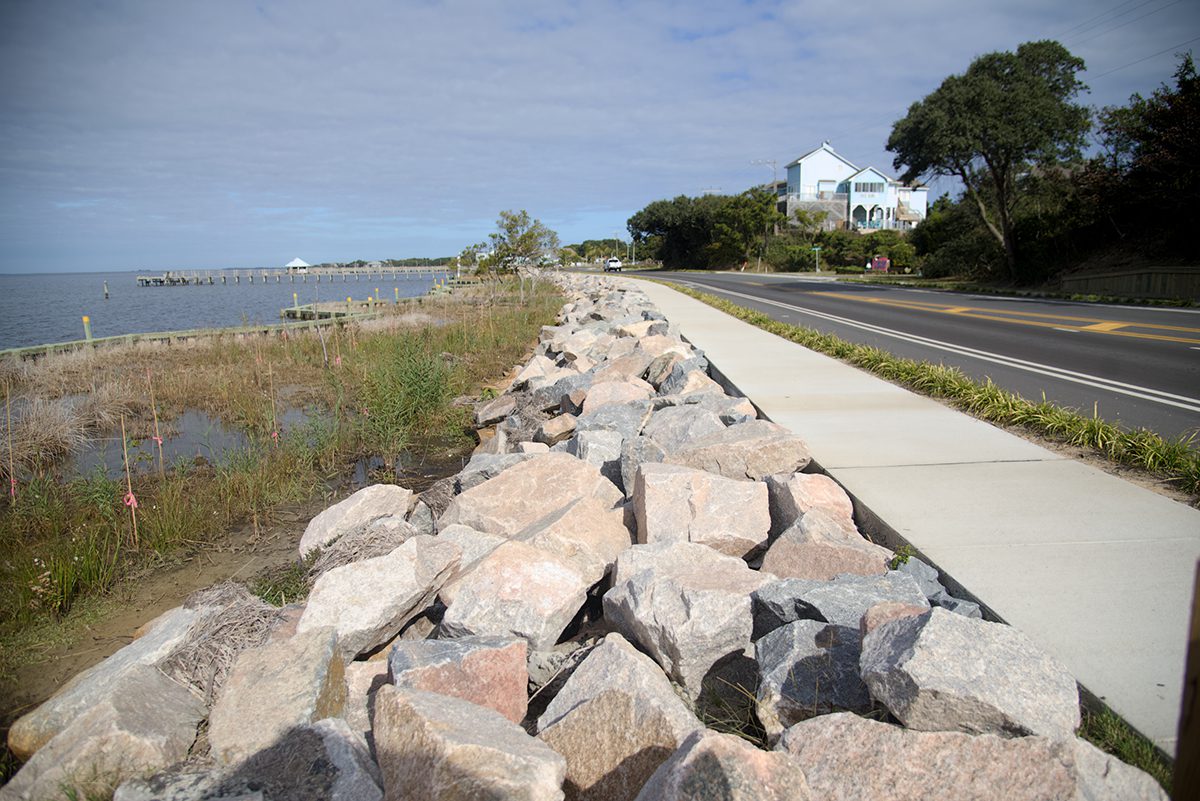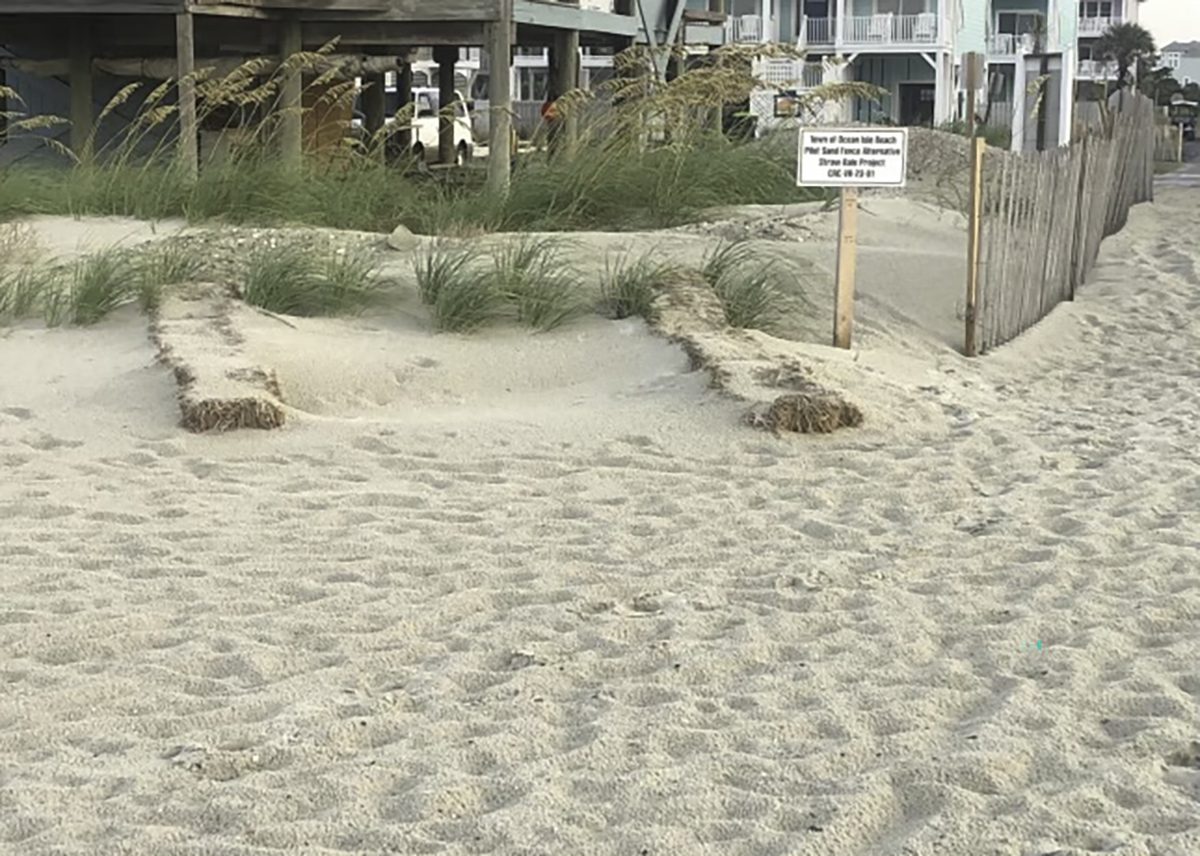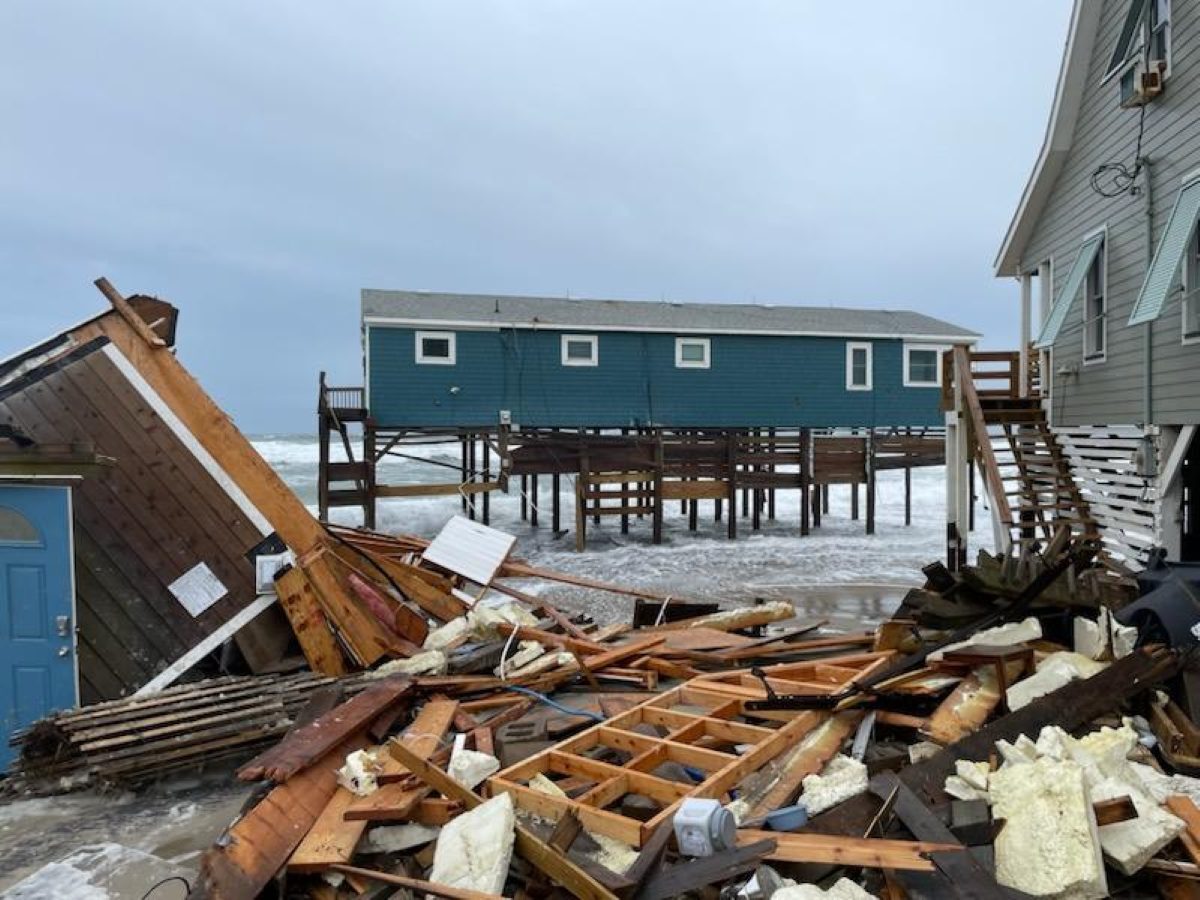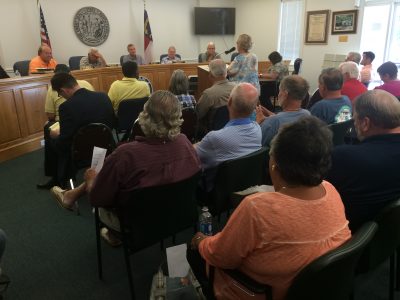
SUNSET BEACH – Mayor Ron Watts says this Brunswick County town may hire a lobbyist to try and block a bill making its way through the state General Assembly that would remove three properties from the town limits.
Meanwhile, negotiations between the town attorney and representatives of companies seeking to develop at least two of the properties will continue, Watts said Thursday during a special meeting of the Town Council called to come up with a response to Senate Bill 875. More than 50 attended the meeting.
Sponsor Spotlight
The council took no action following a more than hour-long closed session discussion with the town attorney during the meeting but will discuss the matter further during its regularly scheduled meeting Monday.
“Requests received from the two parties are reasonable,” Watts said. “We’re not sure we can come to terms.”
Sen. Bill Rabon, R-Brunswick, introduced the bill. It affects three separate parcels: The Palm Cove development, which includes about 10 oceanfront lots where two homes are now under construction at the east end of the barrier island; the Sunset Creek Commons apartment complex that is part of more than 64 acres on the mainland voluntarily annexed in 2008; and Sunset West, a 21-lot oceanfront development at the west end of the island.
The Senate Committee on State and Local Government approved the de-annexation measure last week. The bill also passed the Senate Finance Committee Tuesday.
Developer Sammy Varnam appealed to Rabon for help. He said the bill is needed to protect private property rights.
Sponsor Spotlight
“As private landowners we have a right to make our own financial decisions going forward,” Varnam said after the meeting adjourned.
Varnam said his development plans are good for the town and Brunswick County but members of the town council have put up roadblocks to the culmination of Sunset Beach’s original developer’s plans.
“We are disappointed that the town council has not communicated in good faith to allow our company to develop a plan that will fulfill the late Ed Gore’s vision of developing Sunset West into a project that is good for not only the town but also the state of North Carolina,” Varnam said.
He said a “small but vocal group” in town had disseminated “false information” that damaged his company’s development efforts.
“We hope in the future going forward the Senate Bill 875 is a wakeup call for town leaders to join us in conversations that will accomplish a final plan that the majority will agree on,” Varnam said.
Town residents who spoke during the meeting’s public comment period largely disagreed.
Richard Hilderman, a Sunset Beach resident, said property owners have a right to develop their property only as long as all rules and regulations are enforced.
“The town has a responsibility to enforce all these regulations because we live at the coast and are at high risk from storms,” Hilderman said.
Some said the bill sets a dangerous precedent for all North Carolina towns and represents an overstep in governmental authority.
Others said state legislators were wrong to sidestep town officials in a local issue.
“It’s a sad state of affairs when our elected representative represents private interests without consulting the town or its citizens,” said resident John Corbett.
Karen Joseph, a former town council member, said the council’s handling of the matter “breaks her heart.”
“If a developer is following the rules, they’re following the rules. If they are bad rules they should try to change them, but the rules shouldn’t change just because (town council members) don’t like what they want to do,” Joseph said.
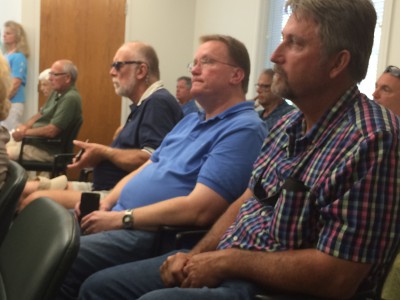
Watts rejected the notion that the town council doesn’t support development. He said the properties specified in the bill represent less than $15,000 in tax revenues, but the issue is symbolic.
“No matter where the legal borders end up, the individuals who live in these areas will consider themselves part of the community,” Watts said.
Town officials acknowledged during the meeting that in the three weeks since they were notified of the de-annexation bill, all council members had met with Rep. Frank Iller, R-Brunswick, at town hall. Developers of all three projects were invited to the meeting but they declined. However, various council members had met individually with developers of Palm Cove and Sunset West.
Councilman Peter Larkin said there had been, during the past two or three weeks, “very significant, calm and important discussions between council members and the parties involved.” The controversy and the resulting legislation were the result of “a lot of misunderstanding and miscommunication,” he said.
Councilman Rich Cerrato said he didn’t take part in the meetings.
“I do not like meetings behind closed doors that impact the taxpayers of Sunset Beach,” Cerrato said, adding that residents demand to know what had been discussed.
Mayor Pro Tem Carol Scott said she was tired of the issues being framed in terms of “backdoor politics” or that council members acted with “ulterior motives.” Such allegations were harmful to the town, she said.
“I hate the notion of these parcels of town not being part of this community,” Scott said. “We need to do whatever we can to keep them. We have a responsibility to work out differences, but there have been no secret meetings.”
Varnam also took issue with rumors circulating in the community he said were false, including the dispute over ownership of land included in one of the projects and that he proposes to build on a former inlet.
Varnam said Mad Inlet was more than 1,900 feet west of his site when it closed by natural coastal processes. The inlet was on Bird Island, he said.
“You can look at the old aerials,” he said.
Varnam said developing an area protected under the federal Coastal Barriers Resource Act was not an irresponsible move and would not affect the town in any way.
“We are on our own, self-funded, and we’ve not asked the town for a dime. We are not putting anybody at risk,” Varnam said.



